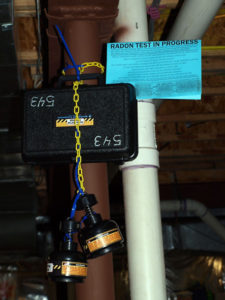Keep Your Homes Safe From Radon!
go.ncsu.edu/readext?580097
en Español / em Português
El inglés es el idioma de control de esta página. En la medida en que haya algún conflicto entre la traducción al inglés y la traducción, el inglés prevalece.
Al hacer clic en el enlace de traducción se activa un servicio de traducción gratuito para convertir la página al español. Al igual que con cualquier traducción por Internet, la conversión no es sensible al contexto y puede que no traduzca el texto en su significado original. NC State Extension no garantiza la exactitud del texto traducido. Por favor, tenga en cuenta que algunas aplicaciones y/o servicios pueden no funcionar como se espera cuando se traducen.
Português
Inglês é o idioma de controle desta página. Na medida que haja algum conflito entre o texto original em Inglês e a tradução, o Inglês prevalece.
Ao clicar no link de tradução, um serviço gratuito de tradução será ativado para converter a página para o Português. Como em qualquer tradução pela internet, a conversão não é sensivel ao contexto e pode não ocorrer a tradução para o significado orginal. O serviço de Extensão da Carolina do Norte (NC State Extension) não garante a exatidão do texto traduzido. Por favor, observe que algumas funções ou serviços podem não funcionar como esperado após a tradução.
English
English is the controlling language of this page. To the extent there is any conflict between the English text and the translation, English controls.
Clicking on the translation link activates a free translation service to convert the page to Spanish. As with any Internet translation, the conversion is not context-sensitive and may not translate the text to its original meaning. NC State Extension does not guarantee the accuracy of the translated text. Please note that some applications and/or services may not function as expected when translated.
Collapse ▲January was National Radon Action Month. “But, Why is Radon Action Month important?”, you might ask.

A Radon Test in progress in a home. (Source from Birdies100 via Flickr)
According to the North Carolina Radon Program, radon is a radioactive gas that occurs naturally in soil and rock and is invisible and colorless. The gas easily seeps through cracks in walls and the foundation of houses. As explained by the Environmental Protection Agency, radon exposure can lead to lung cancer and is believed to be the number one cause of lung cancer for non-smoking peoples.
The first step to prevention or eradication of radon in your home is to test your home. Radon tests are available at home improvement stores, online to order, and sometimes through your state radon programs for a discounted price or free.
The North Carolina Radon program explains, if your home hits at 2 pCi/L or less, your home is at a safe level for radon. If it hits above 2 pCi/L, test your home again. If it tests above 4 pCi/L, seek action to remove dangerous levels through mitigation.
Be sure to check out the North Carolina Radon Program website, for tips and resources on radon, and stop by the N.C. Cooperative Extension, Union County Center to pick up a free radon test, while supplies last! Remember, National Radon Action Month may be in January, but checking for radon can be done, anytime throughout the year!
References




